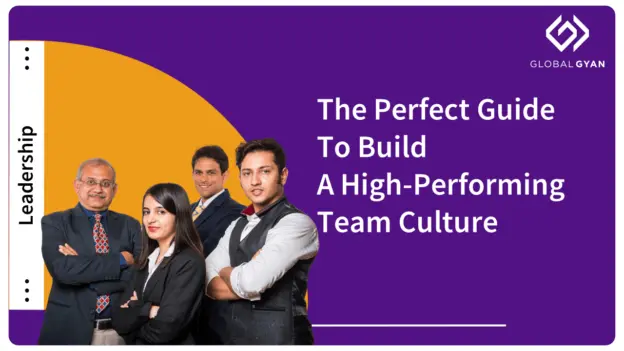What Is Adaptive Leadership Training and Why It Matters in 2025


Have you ever watched a skilled sailor navigate through stormy waters? They don’t fight the wind or waves head-on; instead, they adjust their sails, modify their course, and adapt to the changing conditions. This is precisely what adaptive leadership is all about in today’s business world—especially in India’s rapidly evolving corporate landscape.
Across Mumbai, Bangalore, and Delhi, the ability to navigate uncertainty and lead through complexity has become the most valuable leadership currency in 2025. Whether you’re a young professional eyeing that first management role, a mid-level manager facing unprecedented challenges, or an MBA student preparing to enter the workforce—adaptive leadership training isn’t just another credential to add to your LinkedIn profile; it’s becoming essential for survival and success.
But what exactly is adaptive leadership training, and why has it suddenly become so crucial in 2025? Let’s dive in.
What is Adaptive Leadership?
Adaptive leadership is a framework that enables individuals and organizations to navigate complex challenges by encouraging flexibility, innovation, and collaboration. Unlike traditional leadership approaches that might work well for straightforward problems with clear solutions, adaptive leadership thrives in environments where the challenges are complex, the solutions unclear, and the stakeholders diverse.
The concept addresses the unique challenges faced by Indian businesses perfectly—from navigating cultural diversity to managing rapid technological change while honoring traditional values.
The Origins of Adaptive Leadership
Who developed the adaptive leadership model? The model was developed by Ronald Heifetz and Marty Linsky at Harvard Kennedy School. Their groundbreaking work emerged from observing how leaders across different sectors responded to complex challenges that couldn’t be solved through technical expertise alone.
In India, where businesses constantly balance tradition with innovation, this approach has found particular resonance in the post-pandemic business environment.
Core Principles of Adaptive Leadership
What are the core principles of adaptive leadership? Key principles include emotional intelligence, organizational justice, development, and character.
Let’s break these down in a way that makes sense for the Indian context:
Principle | Description | Indian Business Application |
|---|---|---|
Emotional | Understanding and managing emotions of self and others | Critical in navigating India’s relationship-centric business culture |
Organizational Justice | Ensuring fairness in processes and outcomes | Essential in addressing hierarchical traditions while promoting merit |
Development | Continuous learning and growth mindset | Helps bridge skill gaps in India’s rapidly evolving job market |
Character | Integrity, authenticity, and ethical behavior | Aligns with Indian values of trust and reputation in business |
These principles aren’t just theoretical—they’re practical tools for navigating the complexity of modern Indian business environments.
How Adaptive Leadership Differs from Traditional Leadership
How does adaptive leadership differ from traditional leadership styles? Unlike traditional leadership, which often relies on authority and established procedures, adaptive leadership focuses on mobilizing people to tackle tough challenges and thrive amidst change.
This key distinction is evident when observing Indian startups and established corporations alike:
- Traditional leadership says: “I have the answers. Follow my lead.”
- Adaptive leadership asks: “What are we really facing here, and how can we figure this out together?”
This shift is particularly relevant in India’s dynamic business environment where many organizations are navigating:
- Rapid technological transformation
- Changing consumer expectations
- Global market integration
- Multi-generational workforce dynamics
- Post-pandemic work models
Essential Skills for Adaptive Leaders
What skills are essential for adaptive leaders? Essential skills include active listening, strategic thinking, emotional intelligence, and the ability to foster collaboration.
For Indian professionals, these skills prove particularly valuable:
- Cultural Intelligence: The ability to navigate India’s diverse cultural landscape while also interfacing effectively with global partners
- Digital Adaptability: Quickly learning and implementing new technologies relevant to your industry
- Stakeholder Management: Balancing the needs of various stakeholders in India’s complex business ecosystem
- Resilience and Stress Management: Maintaining effectiveness during uncertainty and rapid change
- Storytelling: Communicating vision in ways that resonate with Indian cultural narratives and values
Adaptive Leadership Across Different Sectors
Can adaptive leadership be applied in all sectors? Yes, adaptive leadership principles are applicable across various sectors, including business, education, healthcare, and public service.
In India specifically, adaptive leadership is transforming multiple sectors:
Business and Startups
The startup ecosystem in cities like Bangalore and Hyderabad is embracing adaptive leadership to navigate funding uncertainties, rapid scaling challenges, and fierce competition. Rather than rigid business plans, adaptive leaders are creating flexible frameworks that can evolve as market conditions change.
Education
Educational institutions from Delhi to Chennai are using adaptive leadership principles to bridge the gap between traditional academic approaches and the skills needed for the 2025 job market. This includes redesigning curricula, embracing technology, and creating more collaborative learning environments.
Healthcare
In post-pandemic India, healthcare organizations are applying adaptive leadership to address systemic challenges like resource allocation, technological integration, and healthcare accessibility across urban and rural settings.
Public Sector
Government departments and public institutions are gradually incorporating adaptive leadership training to improve service delivery, enhance citizen engagement, and respond more effectively to emerging social challenges.
Challenges in Implementing Adaptive Leadership
What challenges might one face when implementing adaptive leadership? Challenges include resistance to change, uncertainty, and the need for continuous learning and adaptation.
In the Indian context, several specific hurdles exist:
- Hierarchical traditions: Deep-rooted respect for authority can sometimes make it difficult to implement the collaborative aspects of adaptive leadership
- Short-term pressure: The drive for immediate results can conflict with the longer-term perspective often needed for adaptive challenges
- Cultural considerations: Different regions and industries in India may require customized approaches to adaptive leadership
- Resource constraints: Smaller organizations may struggle to invest in comprehensive leadership development programs
Despite these challenges, organizations that persevere in developing adaptive leadership capabilities typically see substantial benefits in their ability to navigate complexity.
Certification Options for Adaptive Leadership
Are there certifications available for adaptive leadership? Yes, several institutions offer certifications and courses in adaptive leadership, such as Harvard Kennedy School and Acumen Academy.
For Indian professionals, here are some notable options to consider in 2025:
- GlobalGyan Leadership Academy
Offers India-centric, application-driven programs for real-world leadership challenges. Designed for mid-to-senior professionals to lead through complexity and change. Combines global frameworks with Indian business insights for maximum relevance. - Harvard Kennedy School’s Adaptive Leadership Programs – While requiring international travel or online participation, these programs are highly regarded globally
- Acumen Academy’s Adaptive Leadership Course – A project-based course accessible online with particular relevance to social enterprise
- Indian Institute of Management (IIM) Leadership Programs – Several IIMs have incorporated adaptive leadership modules into their executive education offerings
- Corporate-Sponsored Training – Many multinational corporations operating in India now offer in-house adaptive leadership development
Benefits of Adaptive Leadership for Organizations
How does adaptive leadership benefit organizations? It enhances an organization’s ability to respond to change, fosters innovation, and improves team dynamics.
For Indian organizations specifically, adaptive leadership delivers these key advantages:
Innovation Acceleration
Companies embracing adaptive leadership principles are better positioned to encourage the creative thinking needed to compete in global markets while addressing uniquely Indian consumer needs and constraints.
Talent Retention
In India’s competitive job market where young professionals are increasingly seeking meaningful work environments, adaptive leadership creates more engaging workplaces with higher retention rates.
Crisis Resilience
Organizations with adaptive leaders weathered the post-pandemic challenges more effectively, pivoting business models and supporting employee wellbeing while maintaining operational excellence.
Cross-Generational Collaboration
Adaptive leadership approaches have proven particularly effective in bridging generational gaps in Indian workplaces, where traditional and modern perspectives often need to find common ground.
Resources for Developing Adaptive Leadership Skills
Where can I find resources to develop adaptive leadership skills? Resources include books like “The Practice of Adaptive Leadership,” online courses, workshops, and training programs offered by various institutions.
For Indian professionals looking to develop these skills in 2025, consider:
Books and Publications
- “The Practice of Adaptive Leadership” by Heifetz, Linsky, and Grashow
- “Leadership on the Line” by Heifetz and Linsky
- “Adaptive Leadership in the Indian Context” by Indian management authors
Online Learning
- LinkedIn Learning’s adaptive leadership modules
- Coursera partnerships with Indian universities offering leadership courses
- Industry-specific adaptive leadership webinars tailored to Indian business contexts
Professional Networks
- Leadership circles in major Indian cities
- Industry association mentorship programs
- Alumni networks from Indian business schools with leadership development focus
Adaptive Leadership Training in India: Current Landscape
The adaptive leadership training landscape in India has evolved significantly in 2025. What was once primarily available through international institutions is now increasingly offered through:
- Indian Business Schools: Premier institutions like IIMs, ISB, and XLRI have developed specialized adaptive leadership curricula
- Corporate Academies: Many large Indian corporations have established in-house leadership academies focusing on adaptive leadership
- Boutique Consulting Firms: Specialized firms offering contextually relevant adaptive leadership training for Indian organizations
- Tech-Enabled Solutions: AI-driven leadership development platforms customized for Indian professionals
Why Adaptive Leadership Matters More Than Ever in 2025
As India continues its trajectory as a global economic power, the complexity of challenges facing leaders has grown exponentially. Several factors make adaptive leadership particularly relevant in 2025:
1. Technology Integration Across Industries
The rapid adoption of AI, automation, and other emerging technologies across Indian industries requires leaders who can help organizations adapt rather than resist these changes.
2. Changing Workforce Expectations
Younger Indian professionals have different workplace expectations than previous generations, seeking purpose, flexibility, and growth opportunities that adaptive leadership approaches are well-suited to address.
3. Global-Local Balance
Indian businesses increasingly need to maintain competitive advantage globally while addressing distinctly local market needs—a classic adaptive challenge.
4. Climate Adaptation
As climate considerations become central to business strategy, adaptive leadership skills are essential for navigating the complex trade-offs involved.
5. Regulatory Evolution
India’s evolving regulatory landscape requires leaders who can help organizations adapt to changing compliance requirements while maintaining innovation.
How to Start Your Adaptive Leadership Journey
If you’re convinced that developing adaptive leadership skills should be your priority in 2025, here are practical steps to begin:
- Self-assessment: Honestly evaluate your current leadership approach against adaptive leadership principles
- Find a mentor: Connect with someone in your industry who demonstrates adaptive leadership qualities
- Start small: Apply adaptive leadership principles to a specific challenge you’re currently facing
- Seek feedback: Regularly ask for input on how you’re implementing these new approaches
- Join a learning community: Connect with others on similar leadership development journeys
Conclusion: The Future of Leadership is Adaptive
As we navigate the complexities of 2025, one thing is clear: the leaders who thrive will be those who can adapt. In India’s dynamic business environment, developing adaptive leadership capabilities isn’t just about professional development—it’s about creating organizations that can weather uncertainty, embrace opportunity, and create sustainable value.
Whether you’re an aspiring leader, a seasoned executive, or someone responsible for developing the next generation of talent, investing in adaptive leadership training is perhaps the most important step you can take to prepare for whatever challenges and opportunities lie ahead.
Are you ready to begin your adaptive leadership journey? What’s one adaptive challenge you’re facing right now in your professional life? Share your thoughts in the comments section below.
Frequently Asked Questions (FAQs)
- What is adaptive leadership in simple terms?
Adaptive leadership is the ability to lead through uncertainty by encouraging innovation, collaboration, and flexibility—crucial when facing complex, changing challenges. - Why is adaptive leadership training important in 2025?
In a world shaped by AI, remote work, and shifting markets, adaptive leadership equips professionals with the mindset and skills to thrive amid disruption and change. - Who should take adaptive leadership training?
Professionals at all levels—especially young leaders, mid-level managers, and MBA students—who want to stay future-ready, handle complexity, and grow in influence. - How is adaptive leadership different from traditional leadership?
While traditional leadership focuses on authority and known solutions, adaptive leadership emphasizes problem-solving, team engagement, and navigating the unknown. - Where can I learn adaptive leadership in India?
Top programs are now available from institutions like GlobalGyan Leadership Academy, Harvard Kennedy School, and Acumen Academy—online and in hybrid formats. - What benefits can I expect from adaptive leadership training?
You’ll improve your ability to manage change, inspire diverse teams, drive innovation, and position yourself as a resilient, future-ready leader.






Responses